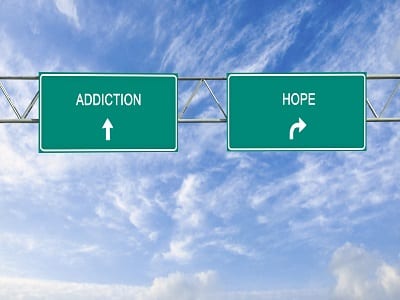This is the second in a four-part series on the stages of addiction treatment and recovery. In the coming weeks, we’ll explore the full range of recovery so you have a better understanding of what to expect when you seek treatment for addiction and substance use. In part 1 of our series, we explored the detoxification phase; in part 2 we’re taking a look at residential treatment for substance use disorder and its important role in the recovery journey.
Residential treatment centers, also called rehabilitation centers or rehabs, provide live-in recovery programs for those struggling with alcohol, drug use, or other behavioral health challenges. Typically, patients (or clients) can stay in residence for 30 or more days.
Components of the program may include medically-supervised detoxification, individual, group, and family therapy, medication-assisted treatment, 12-step or other recovery support groups and an aftercare program.
Why is residential treatment important?
Studies have found those completing a quality residential treatment program have an excellent rate of success for long-term recovery. This is supported by a Substance Abuse and Mental Health Services Administration (SAMHSA) survey report that notes that “the completion rate for people seeking drug and alcohol treatment was highest for those discharged from residential treatment.”
Residential treatment provides the highest level of long-term care available, giving you the time you need to make lasting behavioral changes. Among other topics, you can learn how to identify and manage triggers, increase your ability to cope with negative emotions, improve interpersonal relationships and how to avoid relapse.
Other positive benefits of residential treatment include:
- Immediate support during instances of anxiety, doubt or crisis
- Medical supervision for a safer, more comfortable withdrawal
- A support network of professionals who want you to succeed
- The opportunity to give and receive support with others going through a similar experience
- The opportunity to learn and practice new skills and behaviors in an environment free of distractions or triggers
How does it work?
After your initial medical assessment, the treatment program’s clinical team develops an individualized treatment plan tailored to your needs. Your treatment plan includes ongoing medical oversight, individual and group therapy, and education to help you better understand your challenges and any other underlying issues.
Residential recovery programs are highly structured, offering a strict routine so you know what to expect each day while providing the clinical and therapeutic support you need to heal.
How should you choose the right treatment level?
For the greatest likelihood of long-term recovery, it’s important to choose the appropriate level of treatment services for your needs. Begin by talking to your physician or an addiction specialist for guidance as to whether an outpatient or inpatient program is best for your needs.
Make sure the treatment facility you choose is accredited with a proven track record of success. If it is accredited by the Joint Commission, you know they meet the highest quality and performance standards.
What happens after residential treatment?
After you complete residential treatment, it’s vital to receive continued support in the form of extended care, also called aftercare. This provides valuable reinforcement of your new coping skills as you transition back to the reality of the outside world.
Maintaining contact with therapists and services provided by your residential program, regularly attending 12-step or other support groups and continuing to practice healthy living skills learned in rehab arm you with the greatest tools to avoid relapse.
At Turning Point of Tampa, our goal is your complete and continuous abstinence. Our intensive 30-day program focuses on relapse prevention, development of healthy coping skills, and identification of underlying issues related to addiction, eating disorders and other addictive behaviors.
Turning Point of Tampa’s goal is to always provide a safe environment and a solid foundation in 12-Step recovery, in tandem with quality individual therapy and groups. We have been offering Licensed Residential Treatment for Addiction, Eating Disorders and Dual Diagnosis in Tampa since 1987.



